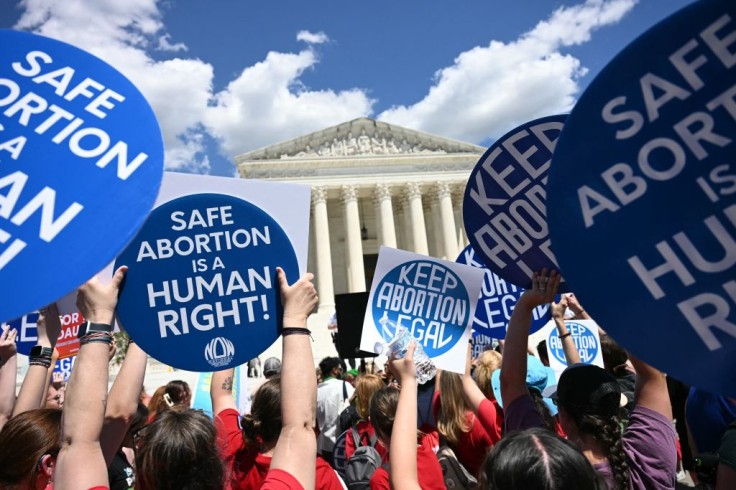
Emergency abortions in Idaho might be poised for approval by the Supreme Court after a draft has briefly become available on the Court's official website.
The abortion ban in Idaho is known to be one of the most stringent in the country. However, expecting mothers who are delivering with significant medical emergencies might soon be able to access abortion within the state.
Supreme Court's Unintentional Release
The Supreme Court inadvertently posted a document on its website, revealing a potential decision that would allow hospitals in Idaho to perform emergency abortions to protect a pregnant patient's health.
The court's spokeswoman, Patricia McCabe, confirmed that the opinion in the Idaho case would be issued "in due course" and acknowledged the unintentional publication.
The draft opinion suggests that the court should not have intervened so quickly in Idaho's strict abortion ban case. In a statement released by Justice Ketanji Brown Jackson, she emphasized that this significant move is not yet a victory towards the health of expecting mothers but rather, a delay for patients in Idaho.
Implications for Idaho's Abortion Ban and Future Legal Battles
If this decision becomes official, it would reverse the Supreme Court's earlier order that allowed Idaho's abortion ban to take effect, even in medical emergencies.
This procedural focus could indicate the court's reluctance to address abortion-related decisions on their merits in an election year, according to Greer Donley, a reproductive law scholar at the University of Pittsburgh School of Law.
Idaho doctors have reported that several women required medical airlifts out of state for treatments that included abortion to avoid severe health risks.
Furthermore, Xavier Becerra, the United States Secretary of Health and Human Services, met up with doctors and patients in Idaho to discuss more about the serious implications of the state's abortion ban.
An OB/GYN in Idaho, Dr. Sarah Thompson, expressed the harsh reality that the people in the medical field are now facing in the state, emphasizing the risks of not being legally able to treat patients during medical emergencies under the current law of the state.
Potential Change in Abortion Ban Ruling
The opinion that was quickly displayed features Justice Elena Kagan, Justices Sonia Sotomayor, and Ketanji Brown Jackson emphasizing the significance of having access to all essential medical treatments as promised by EMTALA.
In addition, Justice Amy Coney Barrett, Chief Justice John Roberts, and Justice Brett Kavanaugh all agreed in her concurring opinion that the extent of the disagreement has become uncertain after the Supreme Court's initial participation.
In opposition, Justice Samuel Alito, along with Justices Clarence Thomas and Neil Gorsuch, denounced the majority for what he called a sudden change in opinion. He claimed that the court was sidestepping a politically controversial matter.
The American College of Obstetricians and Gynecologists is anticipating that the Supreme Court will approve urgent abortion services for the health of pregnant women and mothers in danger, relying on medical professionals and scientific proof.
Idaho's restrictive abortion legislation, implemented following the Supreme Court's decision to reverse Roe v. Wade in June 2022, permits abortion solely when necessary to protect the mother's life or in instances of rape or incest.
The Biden administration asserts that EMTALA mandates hospitals to offer stabilizing treatment, which includes abortions, during emergencies, superseding state limitations. Idaho officials argue that EMTALA does not require abortions and cannot supersede state laws.
Related Article: 2024 Gerber Baby Revealed: Meet Sonny McLeod from Arizona